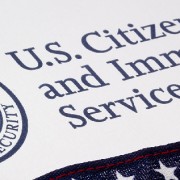Investing In An Election Year, the IRS and Tax Tips To Save You Money On ESPN Radio – March 4, 2016 Show
Topics Covered:
1. One Caveat, Two Predictions: Issues that Could Be Affected by the Elections Outcome.
2. Myth-Busting: Clearing Common Misconceptions Off the Table.
3. Hot Tax Tips To Save You Money!
4. Questions from our listeners:
- I am about to turn 62, and I am thinking of electing my SS benefit. Is this the best thing to do?
- My family is originally from Cuba and I am interested in investing in that country now that the embargo has been lifted. What do I need to know when it comes to U.S. taxes?
*****************************************************************************
Jeff states: Yes sometimes we just have to take the money and run!
Good afternoon! Welcome to Inside Advantage – Your Financial And Tax Radio Show.
This is Board Certified Tax Attorney, Jeffrey B. Kahn, the principal attorney of the Law Offices Of Jeffrey B. Kahn, P.C. and head of the KahnTaxLaw team.
Gary states:
And this is Licensed Financial Planner, Gary Sussman at Trilogy Financial Services.
You are listening to our weekly radio show where we talk everything about finances and taxes from the ESPN 1700 AM Studio in San Diego, California.
Jeff states:
When it comes to knowing tax laws and paying taxes, let’s face it — everyone in the U.S. is either in tax trouble, on their way to tax trouble, or trying to avoid tax trouble!
Gary states:
And whether you are on the rebound or flying high, we have the information you need to make sound financial decisions and map out your strategy for success.
Jeff states:
Our show is broadcasted each Friday at 2:00PM Pacific Time and replays are available on demand by logging into the KahnTaxLaw website at www.kahntaxlaw.com.
Jeff states:
For today’s show we have coming up:
Segment 2 material: Myth-Busting: Clearing Common Misconceptions Off the Table.
Gary states:
Also coming up is:
Segment 3 material: Hot tax tips to save you money!
And of course towards the end of our show, we will be answering some of your questions.
Jeff starts chit chat with Gary.
Jeff states: So for today’s top story:
One Caveat, Two Predictions: Issues that Could Be Affected by the Elections Outcome.
Credit to: Webman, Jerry Ph.D., CFA; Everything Investors Need to Know—and Should Ignore—About the Upcoming Elections, Election 2016 in Perspective, OppenheimerFunds.
Gary starts: Forecasting is not an exact science. It would be easier to predict the weather over a year from now than to predict who’s going to win the next presidential election. That being said, it’s still plausible to form practical expectations about how the November Elections will pan out.
Jeff continues: Let’s begin with prediction number one, shall we? Oppenheimer is predicting the Republican Party will likely retain control of the House of Representatives. At 247 Republican seats versus 188 Democrat seats, it’s difficult to see, but not improbable, that Democrats could win control of the House.
Gary replies: It sure looks that way, Jeff. Every ten years a census is conducted resulting in how the House’s 435 seats are allocated amongst the 50 states, according to the U.S. Constitution. The most recent census was conducted in 2010, resulting in political victories for the Republican Party.
Jeff continues: Even though all seats are up for re-election this year, we can likely be seeing an awful lot of red in coming years leading into the 2020 election. The odds of Democrats being able to win enough seats—218—to take over the majority are dismal at best, based on current projections.
Gary states: Which brings us to the number two prediction. Regardless of who controls the Senate, the next President isn’t likely to have the Filibuster-Proof Upper House. Republicans currently have control of the Senate with fifty-four seats, with Democrats occupying forty-four and Independents a meager two seats.
Jeff replies: In order to take the majority, Democrats have to gain an additional five Senate seats in the 100-member Upper House. Fifty-one isn’t the magic number though, sixty is.
Gary continues: With 34 total seats up for reelection this year, we could possibly be counting Senate seats into the wee hours of the morning on November 9th, with prospects of the Democrats realizing their fifty-one seats. Although, at this point the chance of that happening is doubtful.
Jeff states: Regardless of which party hold the House or the Senate though, there are six truths that won’t be affected by the elections outcome.
Gary replies: The first truth leads us to the understanding that gridlock doesn’t mean nothing gets done. Gridlock doesn’t equate inaction, it only curtails the volume of legislation that can be passed during a point when “the White House doesn’t have a majority in the House of Representatives and a filibuster-proof majority in the Senate”.
Jeff continues: Even during a point when experts remained out-spoken on their view that the extent of hostility between Democrats and Republicans was leading to stalemates, progress was being made. The Federal debt burden is gradually becoming more affordable.
Gary states: Progress on a Budget Deficit Reduction during a period of gridlock resulted in the Federal Budget Deficit being 10.8% of GDP for the 2009 fiscal year. The Budget Deficit came in at 2.3% as of late September 2015.
Jeff states: Number two on Oppenheimer’s list of truths reads, changes in Washington don’t typically come all at once but in increments. This is with few exceptions of course, like ObamaCare or Dodd-Frank.
Gary continues: The United States tends to change policy in small steps, rather than in leaps and bounds. Debates over energy, transportation and immigration policy have long been the top discussed issues, however for decades, we have seen few substantial changes.
Jeff replies: Campaign rhetoric, making number three on the list, doesn’t always influence what occurs during a President’s tenancy in the White House. Take Obama for example and his steps along the way with “The Promise”, “The Reality” and “The Reason”.
Gary continues: In 2008, The Promise was in support of environmental issues. Obama had then promised to limit carbon emissions, along with supporting the development of non-petroleum fuels.
Jeff replies: However, in 2008 when he made this vow, U.S. crude oil production satisfied 25.6% of domestic consumption. By 2015, U.S. crude oil production was satisfying 46.7% of domestic consumption.
Gary continues: The reasoning behind this was mainly the effect of an economic shift. Surges in oil production hit a 45-year high due to the effect of advanced techniques for oil extraction. Additionally, favorable tax treatment from the government had an influencing hand.
Jeff replies: How was Obama supposed to predict any of that happening? Like we said earlier, forecasting is not an exact science. Due to economic forces at work during any president’s time in office, we should not create expectations about any particular administration acting adversely to the petroleum industry.
Gary states: Number four of six brings us to consumers and businesses having a far greater impact on the economy that the government. Private consumption, private investment and foreign trade make up 82.4% of Gross Domestic Product.
Jeff replies: Gary, the greater part of what happens in the U.S. economy is the effect of you, me and the businesses we’re employed by and support. Not to mention the enormous global output that is produced outside the U.S.
Gary states: The state of the economy influences who is president, not vice versa. This is a very important truth. The proof that the state of the economy determines the next commander-in-chief, can be found in decades of historical data.
Jeff replies: Very true, Gary. The fact of the matter is, a strong economy with declining employment and inflation equals a win for the incumbent party candidate. This can be seen in eleven out of the last thirteen elections, with only two exceptions.
Gary states: So what does that leave us with? Well, it leaves us believing that the stock market doesn’t care if the public is happy with whomever is currently president. History has been shown to suggest the market is resilient and even indifferent to a president’s approval rating. From Obama to John F. Kennedy, the ebb and flow of the market never seemed to match to the highs and lows of American satisfaction.
Jeff states: But what could be affected by the outcome of the election? Public Policy for one! On the healthcare front, we are likely to see changes to ObamaCare, even if there’s very little chance of its repeal.
Gary continues: In entitlement programs, it’s doubtful that we’ll see any reverse of policy that have been around for eighty years. On the same topic though, we could expect to see cost control measures for Medicare and Medicaid programs.
Jeff replies: With mandatory cuts to federal programs already being lackadaisical, we can anticipate debates over the best use of defense spending. It’s likely we’ll see a jobs argument added to the national security case in negotiations over whether or not to cut or keep each procurement item.
Gary states: We may see a few compromises on tax policy, such as treatment of offshore earnings, but we’re unlikely to see any changes in our tax code.
Jeff states: The Dodd-Frank regulations put in place to prevent another financial crisis, like in 2008, are unlikely to be repealed despite what many in the financial services industry may want. However, how aggressively the rules are enforced will all depend on the next resident of the White House.
Gary states: Judicial appointments by the next president will occur at least once as Justice Ginsburg is over 80 years old and both Justices Breyer and Kennedy will turn 80 over the next three years. There is a tremendous possibility that the next president will shape the court and its decisions for decades to come by appointing several new justices during his or her term.
Jeff continues: The executive branch of the government has substantial range to decide how to enforce existing laws. Just a few areas that executive direction can influence in the absence of legislative action include financial services, education, defense, healthcare, environmental protection and energy production.
Gary states: All in all though, it’s not wise to let your reaction to the new changes in government leadership shape your investment decisions. Stick with your long-term strategy. Realistically, most of us dislike the opposition more than we approve of our own party anyway.
Jeff states: Well it’s time for a break but stay tuned because we are going to shed some light on Myth-Busting: Clearing Common Misconceptions off the Table.
You are listening to Board Certified Tax Attorney, Jeffrey B. Kahn, and Licensed Financial Planner, Gary Sussman on Inside Advantage on ESPN.
BREAK
Welcome back. This is Inside Advantage – Your Financial And Tax Radio Show on ESPN and you are listening to Board Certified Tax Attorney, Jeffrey B. Kahn, and Licensed Financial Planner, Gary Sussman.
Before we start with our next segment, Gary would you tell our listeners about how they can reach you.
Gary states PLUG: Trilogy Financial Services will provide you with a retirement cash flow analysis which is a $600.00 value for free as long as you mention the Inside Advantage Radio Show when you call to make an appointment. Call my office to make an appointment to meet with me, Gary Sussman. The number to call is 949.536.2030. That is 949.536.2030. Or visit www.yourfinancialstory.com.
Jeff resumes:
Myth-Busting: Clearing Common Misconceptions off the Table.
Credit to: www.oppenheimerfunds.com/advisors/article/investors-clear-election-choice-stay-buckled-in
Jeff begins: Now that we’ve reviewed the basics of the market reactions to changes in the political arena, let’s take this time to further explore myth-busting and clear common misconceptions off the table.
Gary states: To paraphrase, Princeton economist Alan Binder once noted that “economic growth and financial market returns during a President’s term are explained by good luck with perhaps a touch of good policy. And even then, good policies might take years to have an impact, benefiting future administrations.
Jeff replies: Realistically speaking, implications of the elections for the global economy and the financial markets aren’t as significant as they seems. If you look at it this way, we are a nation of roughly 125 million households, yet ultimately it’s the other 2 billion some-odd households worldwide that stimulate the direction and strength of the global economy. It’s that vitality that fuels financial markets.
Gary replies: Consider this, in 2009 when Barack Obama was sworn in as the new president, many investors went on record saying they were going to “sit this one out”, given Obama’s positions on policy.
Jeff continues: At that point in time, the S&P 500 was trading at a historically low 12x trailing 12-month earnings; compared to the long-term average of 16x. The Federal Reserve was very accommodating with monetary policy, adopting a 0% interest rate. And the U.S. economic indicators seemed to be regaining their bearings following the worst recession in decades.
Gary states: That being said, how did things work out for all those investors on the sidelines? As we witnessed in the six years post-inauguration, stocks climbed to a 200% return. Reminding all of us, to not base our financial practices primarily on who so ever is occupying 1600 Pennsylvania Avenue.
Jeff states: Now, national elections are important, we’re not saying that they’re not. So are national policies, as they matter over time. When it comes down to four-year election cycles though, they should not be governing your long-term investment decisions.
Gary states: If we look at historical data, say, over a seventy year span of time, we can best see the outcome of your financial plan if you had only invested while your preferred party was in office.
Jeff states: Between 1945 and 2015, if you had been fully invested for the long-term with $10,000 in the Dow Jones Industrial Average, it would now have been worth $1.3 million. The market likes a divided government and provided a 7.0% annualized rate of return over the course of those 70 years.
Gary replies: Whereas, if in the same 70 year time-frame you had decided to only invest when your preferred political party was in office, your $10,000 investment would be worth a much smaller amount. About $1 million less, actually, depending on which party you sided with. The unified government plan only provided a 4.6% annualized rate of return.
Jeff continues: The other one we’re always hearing is that financial markets in general would be far better off if opposing political parties acted more cooperatively and were willing to compromise in order to get things accomplished. This is most definitely myth!
Gary replies: Realistically speaking, markets do better during times of political stalemate. If legislature isn’t getting passed and change is occurring at a very low level, the market reacts in a more confident and steady way, seeing as how no big changes are stirring up market volatility.
Jeff states: The fact of the matter is, our founding fathers designed the government in such a matter to create gridlock. The three co-equal branches of the government, legislative, executive, and judicial, in addition to a commanding federalist system, were created to inhibit tyranny. In the words of Henry David Thoreau, “that government is best which governs least”.
Gary finishes: What should investors do, then? Sit back, relax and enjoy the show. You should be in this for the long-run and be maintaining your long term strategies, regardless of what happens in November. If you’re not sure what that long term plan should look like, call me….
Gary states PLUG: Trilogy Financial Services will provide you with a retirement cash flow analysis which is a $600.00 value for free as long as you mention the Inside Advantage Radio Show when you call to make an appointment. Call my office to make an appointment to meet with me, Gary Sussman. The number to call is 949.536.2030. That is 949.536.2030. Or visit www.yourfinancialstory.com.
Jeff states: Stay tuned because after the break we are going to tell you hot tax tips to save you money!
You are listening to Board Certified Tax Attorney, Jeffrey B. Kahn, and Licensed Financial Planner, Gary Sussman on Inside Advantage on ESPN.
BREAK
Jeff states: Welcome back. This is Inside Advantage – Your Financial And Tax Radio Show on ESPN and you are listening to Board Certified Tax Attorney, Jeffrey B. Kahn, and Licensed Financial Planner, Gary Sussman.
Calling into the studio from my Walnut Creek Office is my associate attorney, Amy Spivey.
Chit chat with Amy
Jeff states: In before we continue with this segment, I want to remind our listeners that…
PLUG: The Law Offices Of Jeffrey B. Kahn, P.C. will provide you with a Tax Resolution Plan which is a $500.00 value for free as long as you mention the Inside Advantage Radio Show when you call to make an appointment. Call my office to make an appointment to meet with me, Jeffrey Kahn, right here in downtown San Diego or at one of my other offices close to you. The number to call is 866.494.6829. That is 866.494.6829.
Hot tax tips to save you money!
Jeff states: So now that we at the beginning of March or about half-way through tax season, I thought we would cover today some hot tax tips to save you money.
Home Energy Credits Save Money and Cut Taxes
Gary states: For taxpayers who own their home, consider this – you can trim your taxes and save on your energy bills with certain home improvements. So here is what you need to know about home energy tax credits.
Greg asks Amy: Please explain what is the Non-Business Energy Property Credit.
Amy replies:
Non-Business Energy Property Credit
• Part of this credit is worth 10% of the cost of certain qualified energy-saving items you added to your main home last year. This may include items such as insulation, windows, doors and roofs.
• The other part of the credit is not a percentage of the cost. It is for the actual cost of certain property. This may include items like water heaters and heating and air conditioning systems. The credit amount for each type of property has a different dollar limit.
• This credit has a maximum lifetime limit of $500. You may only use $200 of this limit for windows.
• Your main home must be located in the U.S. to qualify for the credit.
• Be sure you have the written certification from the manufacturer that their product qualifies for this tax credit. They usually post it on their website or include it with the product’s packaging. You can rely on it to claim the credit, but do not attach it to your return. Keep it with your tax records.
• You may claim the credit on your 2015 tax return if you didn’t reach the lifetime limit in past years. Under current law, this credit is available through December 31, 2016.
Jeff comments: With things always tending to break when you least expect it, it is good to keep these tax rules in mind. After all, if you can save $500.00 in taxes it does help offset the cost of that unexpected repair.
Greg asks Amy: Please explain what is the Residential Energy Efficient Property Credit.
Amy replies:
Residential Energy Efficient Property Credit
• This tax credit is 30% of the cost of alternative energy equipment installed on or in your home.
• Qualified equipment includes solar hot water heaters, solar electric equipment, wind turbines and fuel cell property.
• There is no dollar limit on the credit for most types of property. If your credit is more than the tax you owe, you can carry forward the unused portion of this credit to next year’s tax return.
• The home must be in the U.S. It does not have to be your main home, unless the alternative energy equipment is qualified fuel cell property.
• This credit is available through December 31, 2016.
Jeff comments: Clearly the Residential Energy Efficient Property Credit has a lot more bang for the buck than the Non-Business Energy Property Credit since you are not dealing with any dollar limitations and we know that installing solar systems and the like can be very pricey. To claim these credits use Form 5695, Residential Energy Credits.
Tax Tips about Debt Cancellation
Gary states: If your lender cancels part or all of your debt, it is usually considered income and you normally must pay tax on that amount. However, the law allows an exclusion that may apply to homeowners who had their mortgage debt cancelled in 2015.
Gary asks Amy: Since a lot of taxpayers who own a principal residence may have benefited from a reduction in the principal mortgage, how does the tax law treat that debt cancellation?
Amy replies:
1. Main Home. If the cancelled debt was a loan on your main home, you may be able to exclude the cancelled amount from your income. You must have used the loan to buy, build or substantially improve your main home to qualify. Your main home must also secure the mortgage.
2. Loan Modification. If your lender cancelled part of your mortgage through a loan modification or ‘workout,’ you may be able to exclude that amount from your income. You may also be able to exclude debt discharged as part of the Home Affordable Modification Program, or HAMP. The exclusion may also apply to the amount of debt cancelled in a foreclosure.
3. Refinanced Mortgage. The exclusion may apply to amounts cancelled on a refinanced mortgage. This applies only if you used proceeds from the refinancing to buy, build or substantially improve your main home and only up to the amount of the old mortgage principal just before refinancing. Amounts used for other purposes do not qualify. The rules are confusing which is why it is best to seek advice from tax counsel.
Jeff comments: This exclusion has been around for a few years and Congress has extended it several times. The current extension expires December 31, 2016 and with a new Presidential administration starting next year who knows if it will be extended beyond 2016. Keeping in mind that these modifications take a long time to process through the lender and get approval, you should be working on this now to make sure you complete the process before year-end.
Gary asks Amy: Does this exclusion apply to any other types of cancelled debt?
Amy replies:
Other Cancelled Debt. Other types of cancelled debt such as second homes, rental and business property, credit card debt or car loans do not qualify for this special exclusion. On the other hand, there are other rules that may allow those types of cancelled debts to be nontaxable so if you are in this situation, you should seek tax counsel.
Gary asks Amy: Are there any particular forms that taxpayers should be aware of?
Amy replies:
Form 1099-C. If your lender reduced or cancelled at least $600 of your debt, you should receive Form 1099-C, Cancellation of Debt, by February 1st. This form shows the amount of cancelled debt and other information that you may need to reflect on your tax return.
Form 982. If you qualify, report the excluded debt on Form 982, Reduction of Tax Attributes Due to Discharge of Indebtedness. This form gets included with your federal income tax return so you will need to let your tax preparer know to check to see if you qualify for this benefit.
Jeff comments: Again remember that the law that authorized the exclusion of cancelled debt from income was extended through December 31, 2016.
Early Retirement Distributions and Your Taxes
Gary states: Many people find it necessary to take out money early from their IRA or retirement plan. Doing so, however, can trigger an additional tax on top of the income tax you may have to pay.
Gary asks Amy: What are the key points to know about taking an early distribution?
Amy replies:
1. Early Withdrawals. An early withdrawal normally means taking the money out of your retirement plan before you reach age 59½.
2. Additional Tax. If you took an early withdrawal from a plan last year, you must report it to the IRS. You may have to pay income tax on the amount you took out. If it was an early withdrawal, you may have to pay an additional 10% tax.
3. Nontaxable Withdrawals. The additional 10% tax does not apply to nontaxable withdrawals. They include withdrawals of your cost to participate in the plan. Your cost includes contributions that you paid tax on before you put them into the plan.
Jeff comments: Now even though you may withdraw from your retirement account, if you rollover those funds to another retirement account that may be a nontaxable event. A rollover is a type of nontaxable withdrawal. A rollover occurs when you take cash or other assets from one plan and contribute the amount to another plan. You normally have 60 days to complete a rollover to make it tax-free.
Gary asks Amy: Are there any exceptions to the additional 10% tax?
Amy replies:
• Death – after death of the participant/IRA owner.
• Disability – total and permanent disability of the participant/IRA owner.
• Education – qualified higher education expenses.
• Homebuyers – qualified first-time homebuyers, up to $10,000.
• Tax Levy – because of an IRS levy of the plan.
• Medical – amount of unreimbursed medical expenses (>7.5% AGI; after 2012, 10% if under age 65). Also health insurance premiums paid while unemployed.
• Military – certain distributions to qualified military reservists called to active duty.
Jeff comments: Keep in mind though that some of the exceptions for retirement plans are different from the exceptions for IRA’s so you will want to check with your tax advisor and make sure you include Form 5329, Additional Taxes on Qualified Plans (Including IRAs) and Other Tax-Favored Accounts, with your federal tax return.
PLUG: The Law Offices Of Jeffrey B. Kahn, P.C. will provide you with a Tax Resolution Plan which is a $500.00 value for free as long as you mention the Inside Advantage Radio Show when you call to make an appointment. Call my office to make an appointment to meet with me, Jeffrey Kahn, right here in downtown San Diego or at one of my other offices close to you. The number to call is 866.494.6829. That is 866.494.6829.
Thanks Amy for calling into the show. Amy says Thanks for having me.
Stay tuned as we will be taking some of your questions. You are listening to Board Certified Tax Attorney, Jeffrey B. Kahn, and Licensed Financial Planner, Gary Sussman on Inside Advantage on ESPN.
BREAK
Jeff states: Welcome back. This is Inside Advantage – Your Financial And Tax Radio Show on ESPN and you are listening to Board Certified Tax Attorney, Jeffrey B. Kahn, and Licensed Financial Planner, Gary Sussman.
And Gary and I always pleased to make our offers to our listeners where… PLUG: The Law Offices Of Jeffrey B. Kahn, P.C. will provide you with a Tax Resolution Plan which is a $500.00 value for free as long as you mention the Inside Advantage Radio Show when you call to make an appointment. Call my office to make an appointment to meet with me, Jeffrey Kahn, right here in downtown San Diego or at one of my other offices close to you. The number to call is 866.494.6829. That is 866.494.6829.
Gary states PLUG: Trilogy Financial Services will provide you with a retirement cash flow analysis which is a $600.00 value for free as long as you mention the Inside Advantage Radio Show when you call to make an appointment. Call my office to make an appointment to meet with me, Gary Sussman. The number to call is 949.536.2030. That is 949.536.2030. Or visit www.yourfinancialstory.com.
Securities and advisory services offered through National Planning Corporation (NPC), Member FINRA/SIPC, a Registered Investment Adviser. Additional advisory services offered through Trilogy Capital, a Registered Investment Adviser. Trilogy Capital and NPC are separate and unrelated companies.
Jeff states: If you would like to post a question for us to answer, you can go to my website at www.kahntaxlaw.com and click on “Radio Show”. You can then enter your question and maybe it will be selected for our show.
OK Gary, what questions have you pulled for us to answer?
Question from Dee of Orange County asks: I am about to turn 62, and I am thinking of electing my SS benefit. Is this the best thing to do?
Answer: Frankly, there is no single “right” answer because it depends on each individual’s unique circumstances. Social Security is supposed to be used in conjunction with other sources of retirement income. Unfortunately, for a significant number of individuals, the decision about when to file for Social Security comes down to “As soon as I qualify.” Even though they know their monthly benefit will be smaller, they may be concerned that it’s not going to be there in the future, so they figure “I’d better get it while I can.”
While there can be no guarantee that the future program will operate as it has in the past, for many people Social Security has historically amounted to a government-guaranteed, inflation-adjusted, lifetime annuity. The decision to file early can have significant lifelong consequences. Filing to begin benefits at 62, the earliest age possible, results in a 25% less benefit than waiting until Full Retirement Age, which for most of us is 66 and 2 months. Delaying until age 70 produces a significantly higher monthly benefit. In fact, waiting until age 70 to begin receiving Social Security results in a monthly benefit that is 76% greater than the amount an individual would receive at 62.
If this is a question about ensuring that you get the absolute most out of the system, that answer will be dictated by your longevity. Unfortunately most of us don’t have that answer. Generally speaking, waiting to elect benefits will probably result in getting more out of the system. This is a complex question and one’s decision should not be taken lightly, and I would recommend making this decision within the entire scope of your overall financial situation.
Question from Carlos of Chula Vista: My family is originally from Cuba and I am interested in investing in that country now that the embargo has been lifted. What do I need to know when it comes to U.S. taxes?
Answer: Since a foreign government will typically charge income taxes earned on income in that country, taking advantage of Foreign Tax Credits allow U.S. taxpayers to avoid or reduce double taxation. You may choose to take a deduction for foreign taxes paid instead of choosing a credit. In most cases, it is to your advantage to take foreign income taxes as a tax credit. The U.S. government until recently did not allow for this tax credit to be available for Cuba but that has all changed because starting January 1, 2016 the Foreign Tax Credit is now available.
File Form 1116, Foreign Tax Credit, which gets attached to your Federal Individual Income Tax Return to claim the foreign tax credit if you are an individual, estate or trust, and you paid or accrued certain foreign taxes to a foreign country or U.S. possession. Now the Foreign Tax Credit provisions are complex as there are limitations and exclusions which are either established by statute or by the tax treaty with that country so you will want to check with tax counsel to make sure you are getting the full tax benefit allowed.
Jeff states: Well we are reaching the end of our show.
Remember you can send us your questions by visiting the kahntaxlaw website at www.kahntaxlaw.com.
Gary states: Have a great day everyone!









 Follow
Follow Follow
Follow